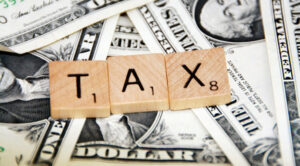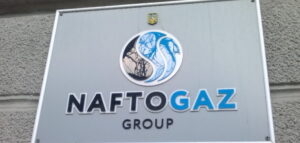
In 2023, the largest alcohol producers increased their income tax payments by 1.7 times compared to 2022, and their income tax efficiency increased from 1.4% in 2022 to 2.0% in 2023, said Danylo Hetmantsev, chairman of the Parliamentary Committee on Finance, Taxation and Customs Policy.
“Measures to de-shadow the alcoholic beverage market, despite the fierce resistance of black market areas (the so-called ‘business defenders’ and ‘sofa experts’), are yielding positive results in the form of budget revenues,” he wrote on Telegram.
The committee chairman named National Vodka Company LLC (Bayadera Group), LVN Limited LLC (TM Nemiroff), Lviv Distillery, and Shustov-Spirt ALC as the leaders in terms of tax efficiency.
According to him, Global Spirit Group has significantly improved its VAT tax efficiency from 3.5% in 2022 to 6.1% in 2023 and 9.4% in 2 months of 2024.
According to Mr. Hetmantsev, the largest alcohol producers have improved their performance not only in terms of income tax, but also in terms of VAT. For two months of this year, VAT payable has already been declared by 28.1% more than in the same period last year.
At the same time, the VAT tax efficiency increased to 6.2% in two months of 2024 from 4.9% in two months of 2023. At the same time, this figure increased by 5.2% compared to 2023.

Agroholding “Agrotrade” in 2023 paid 150 million UAH of taxes and fees, of which 86 million UAH went to local budgets, reported the press service of the agroholding in Facebook.
“So far we can’t cultivate all our areas, as some of them are too close to the border and places of active hostilities – these lands suffer from constant shelling and bombing. Despite this, Agrotrade Group continues to fulfill its financial obligations to the state in a timely manner”, – said the general director of the agroholding Elena Vorona.
According to the report, the largest receipts in 2023 from the agroholding received the communities of Sumy region – 32.46 million UAH, budgets of Chernihiv and Kharkiv regions – 25.44 million UAH and 16.24 million UAH respectively, Poltava region – 11.79 million UAH. “Agrotrade” also paid more than UAH 20 mln of unified social contribution.
Realizing the importance of taxes for financing the urgent needs of Ukrainians, “Agrotrade” plans to increase deductions to the state and local budgets, summarized in the agricultural holding.
Group of companies “Agrotrade” – vertically integrated holding of the full agro-industrial cycle (production, processing, storage and trade of agricultural products). It cultivates more than 70 thousand hectares of land in Chernihiv, Sumy, Poltava and Kharkiv regions. Profile crops – sunflower, corn, winter wheat, soybean and rape. It has its own network of elevators with the capacity of one-time storage of 570 thousand tons.
The Group also produces corn and sunflower seed hybrids, barley and winter wheat. In 2014, a seed plant with a capacity of 20 thousand tons of seeds per year was built on the basis of the seed farm “Kolos” (Kharkiv region). In 2018, Agrotrade brought its own brand Agroseeds to the market.
Vsevolod Kozhemyako is the founder and CEO of Agrotrade.

Dnipro Metallurgical Plant (DMZ, formerly Dniprokoks), a part of DCH Steel of businessman Aleksandr Yaroslavsky’s DCH group, paid over UAH 657 million in taxes in 2023, up 64% compared to 2022.
According to the company, value added tax accounted for UAH 277.5 million in the structure of payments to budgets of all levels. Income tax amounted to UAH 122 million, and unified social tax, rent and other contributions amounted to UAH 257 million.
It is noted that this result of significant support for the state budget was noted by Danylo Hetmantsev, Chairman of the Verkhovna Rada Committee on Finance, Taxation and Customs Policy. He sent a letter of gratitude to the company, in which he noted the hard work of the plant’s team and emphasized that DMZ is one of the industry leaders in terms of tax payments.
“I am grateful to every employee of Dneprovsky Iron and Steel Works for their contribution to the defense capability of our country, its endurance and strength. We continue to work on the economic front to maintain the financial stability of the state,” said Vitaly Bash, CEO of DCH Steel.
In 2023, the plant increased its rolled steel output by 86.2% compared to 2022, up to 105.6 thousand tons, and coke output by 38.5%, up to 292.7 thousand tons.
DMZ specializes in the production of steel, pig iron, rolled products and products made from them. On March 1, 2018, DCH Group signed an agreement to buy Dnipro Metallurgical Plant from Evraz.

In January 2024, Naftogaz Group companies paid UAH 5.6 billion in taxes to the state budget of Ukraine.
“8.5% of all tax revenues to the state budget of Ukraine in January 2024 are taxes paid by Naftogaz Group. We are talking about the amount of UAH 5.6 billion,” the group said on its website on Tuesday.
Another UAH 0.5 billion was transferred to local budgets.
“Naftogaz Group remains one of the largest taxpayers in Ukraine and a reliable support for the state budget. In total, over 31 days of January 2024, we have already paid UAH 6.1 billion in taxes to the country’s consolidated budget,” the group’s CEO Oleksiy Chernyshev said as quoted on the website.
As reported, in 2023, Naftogaz Group companies paid UAH 90.2 billion in taxes, UAH 83.4 billion of which went to the state budget and UAH 6.8 billion to local budgets.

In 2023, the agricultural holding Continental Farmers Group paid UAH 1.4 billion to the budgets of all levels and allocated UAH 37.7 million for social projects, the holding’s press service said on Tuesday.
“As an honest and responsible business, we constantly report annually on taxes paid and financial support to the communities we cooperate with. I would like to emphasize that Continental Farmers Group is and will remain a reliable long-term partner for both its shareholders and the state, especially in this difficult period,” the press service quoted Georg von Nolken, CEO of the agricultural holding, as saying.
According to the report, support for Ukrainian defenders remains an integral part of Continental’s social responsibility policy. Since February 2022, the agricultural holding has allocated UAH 55.1 million to help the military.
Mriya Agro Holding and CFG, united under the name Continental Farmers Group, have been operating as a single business since November 2018, when Mriya entered into an agreement with international investor Salic UK to sell its assets.
Salic was founded in 2012. Its sole shareholder is the Saudi Arabian Public Investment Fund, which invests in agricultural and livestock production.

According to the results of 2023, ATB Group paid taxes and fees to the budgets of all levels, including customs duties and unified social contribution, totaling UAH 25.06 billion, which is UAH 4.62 billion more than in 2022, the company’s press service reports.
According to the report, in particular, the state budget received UAH 16.49 billion, local budgets – UAH 6.02 billion, and UAH 2.55 billion was allocated to trust funds.
Last year, the corporation’s flagship enterprise, ATB-Market LLC, paid taxes and fees totaling UAH 19.45 billion (in 2022 – UAH 15.63 billion). Last year, the state budget received UAH 12.41 billion from ATB-Market LLC, UAH 5.12 billion in taxes and fees were paid to local budgets, and UAH 1.92 billion to trust funds.
ATB Corporation is an association of large Ukrainian companies operating in such business areas as retail, asset management, food production and sales, and sports and recreation services. The corporation employs over 70 thousand people.
As of June 1, 2023, the corporation’s retail network consisted of 1188 stores compared to 1316 stores in January 2022. Last year, the chain’s turnover amounted to UAH 176.9 billion, which is 2% lower than in 2021 (UAH 179.8 billion).